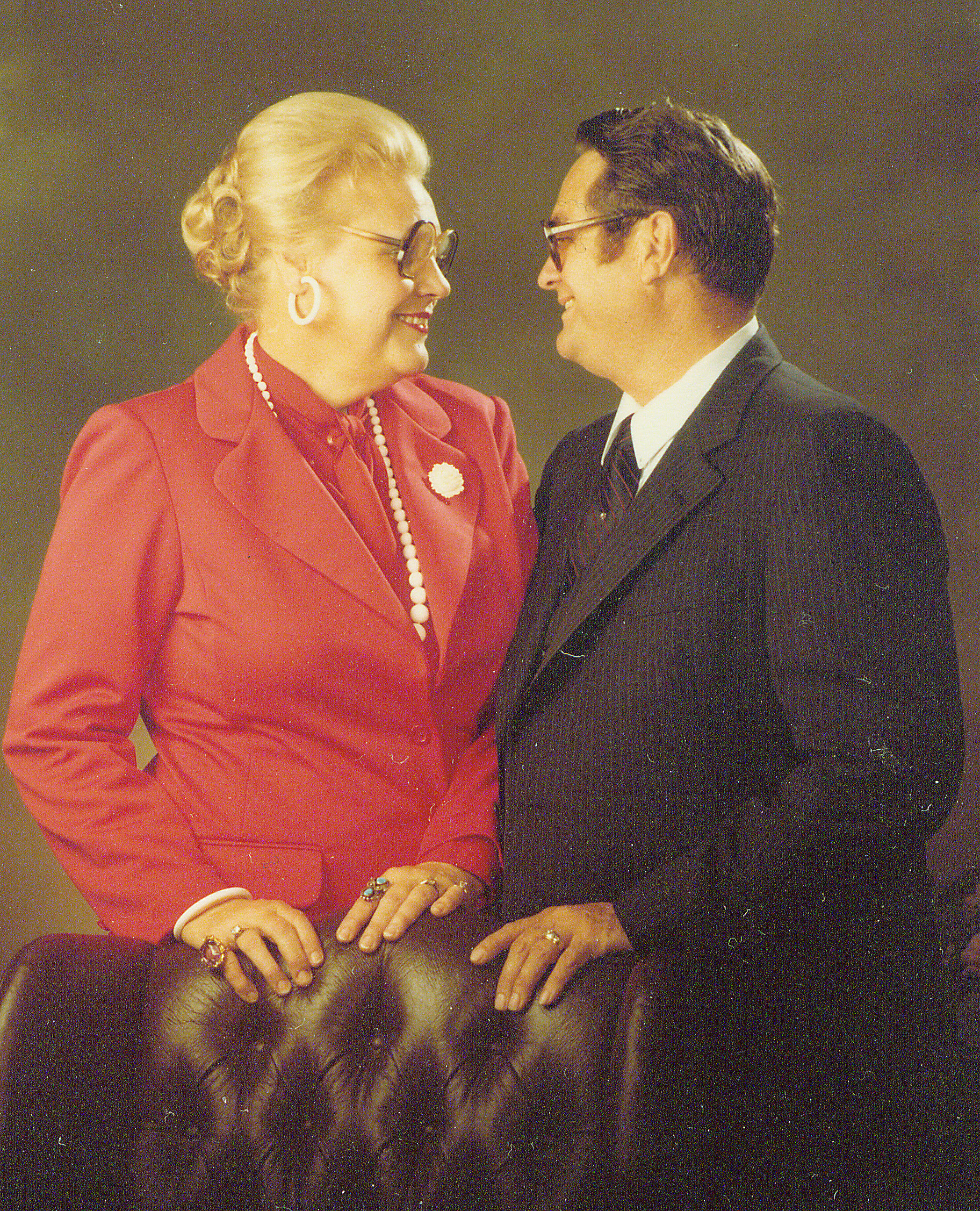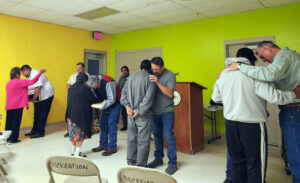
NASHVILLE, Tenn. (BP)–On July 6, 2008, weeks after the passing of her husband of nearly 59 years, Vivian Gray Shoemake joined her husband Earl in heaven. Two remarkable people who in many ways were ahead of their time began celebrating with their Savior for eternity. Their legacy of faith continues to this day.
From his downtown Minneapolis office, Vivian and Earl’s oldest son Robert recently reflected on his parents. Robert directs the Center for Ethical Business Cultures at the University of Saint Thomas. Robert and his brothers each received a thank you plaque — a framed message board with well wishes of North American Southern Baptist missionaries who had been served by the proceeds of a charitable trust given by the Shoemakes.
It was a sizable trust, particularly in light of the Shoemakes themselves who had pastored churches and served in association ministries in various states. Proceeds of the trust have been used to fund pastoral care for missionaries and their families who are serving in North America as well as on international fields. Proceeds also funded a faculty chair at Southwestern Baptist Theological Seminary.
Robert’s reflections on his parents and family revealed just how remarkable this couple was.
Vivian and Earl met while studying at Southwestern in the late 1940s. Vivian traveled to Fort Worth from Jacksonville, Fla., to follow her vision for writing Bible curriculum. She already had demonstrated a heart of compassion for others. Her senior dissertation at Vassar University studied the disparity in social services offered to blacks versus whites in Duval County. While that may not appear significant today, such a topic was a strong departure from the status quo at the time.
Earl’s older brother was a missionary in Latin America, but a knee injury from football prevented Earl from considering fulltime service on the field. Instead, Earl left his Kentucky home to prepare to become a Christian educator. In later years, while serving as a director of missions in Kentucky, Earl’s ministry would reflect a similar global worldview as Vivian. In the early ’60s, he was instrumental in inviting predominately black congregations to join in association planning and ministry. While clearly biblical, his actions were progressive for his time.
Robert could not identify specific Scriptures or even a time when biblical stewardship was talked about in his home growing up. Instead, he described how his parents’ attitudes reflected the notion that everything is a gift from God and believers are responsible to steward it.
“Tithing was always a part of our family’s hard wiring. My parents tithed even when it seemed that they couldn’t afford to,” he said. “I never thought of us as being poor, but I knew there were times where we had very little extra. Rather than teaching tithing and sacrificial giving, my parents simply walked the talk.
“My parents embraced Southern Baptist missions. People in my father’s churches knew the stories of Annie Armstrong, Lottie Moon and the strength of the Cooperative Program. Missions was always a theme of our life,” Robert said.
“Our family took a number of trips to [the Caribbean]. While it is relatively civilized today, the Dominican Republic was wild in those days.”
Earl loved to preach in the churches and medical missions that his brother had helped found.
“My father made a number of trips through the years to preach with his brother. He loved missions.”
In 1974 the Shoemakes received a large inheritance from Vivian’s parents. The words from her mother Lula Gray’s last will and testament convey a deep faith.
“The provisions made in this will for the beneficiaries of this will are all due to the blessings of a benevolent God to my deceased husband, Henry W. Gray, and me over long and abundant lives. In this document I wish to acknowledge that it is all because of His love and grace.”
That same year the Shoemakes made an anonymous gift to establish what is now known as the Shoemake chapel in the West Union Baptist Association in Paducah, Ky.
“Dad was serving as the association’s DOM at the time and didn’t think it proper for people in the area to connect him to this gift,” Robert said. “He had a strong love for the people and ministry of Kentucky. Later, during their retirement, the association asked their permission to identify them as the original donors. That is where they are interred today.”
With the counsel of the Southern Baptist Foundation, the Shoemakes created a Charitable Remainder Unitrust. This type of trust invests the gift made by the donors, pays the donor a fixed percentage of the investment’s earnings every year until their death and distributes the remainder to their chosen charities and ministries.
God’s sovereign hand was evident in the decision of which type of trust to create. In the 24 years following that decision, the Shoemakes received more than $1.4 million in earnings. This became important when Vivian contracted Parkinson’s disease and Earl began to lessen his time in public ministry to focus on the needs of his wife.
“We are so thankful for that trust. When my mother became sick, their other financial resources became depleted, and at the end of their lives this was the most significant piece of their income,” Robert said.
The Shoemakes chose to include the North American Mission Board, the International Mission Board, Southwestern Baptist Theological Seminary, Medical Assistance Programs, Inc. (now MAP International) and the American Bible Society as charitable beneficiaries.
The Shoemakes’ lives ended quietly in separate hospital rooms. Earl became sick with pneumonia and was hospitalized, and God showed His grace at the end. Vivian, while experiencing a brief moment of lucidity, asked her son to phone Earl so she could speak with him. Robert, who was sitting with his dad, answered the phone, and as he was handing the phone to his father, Earl coughed roughly and said, “This isn’t really a good time.” Then to Vivian he said, “I love you,” and he was gone. Vivian died just weeks later.
The life of love and faithful service is modeled in their sons today. The grace they experienced was reflected in their giving — the impact of which is still being felt.
–30–
Written by the staff of the Southern Baptist Foundation.

















